How Aussie entrepreneur Sam Elsom went from fashion to seaweed specialist
He has been jet setting around the globe, from New York to Europe, to spread the word on the groundbreaking product his team has developed.
Former fashion designer turned climate solutions innovator Sam Elsom is urging Australia to invest in our boldest and most critical new technology yet – a livestock feed with the ability to slash global emissions and keep agricultural industries alive.
His business Sea Forest was recently named as a finalist for the $1.9m Earthshot prize set up in 2020 by Prince William and nature documentarian Sir David Attenborough.
In the two weeks that have followed the announcement, Mr Elsom has been capitalising on the buzz and rushing from New York to Europe to spread the word on the groundbreaking product his team has developed.
“We’ve got to hurry up in Australia,” he said.
“We haven’t had a great track record of commercialising our science.
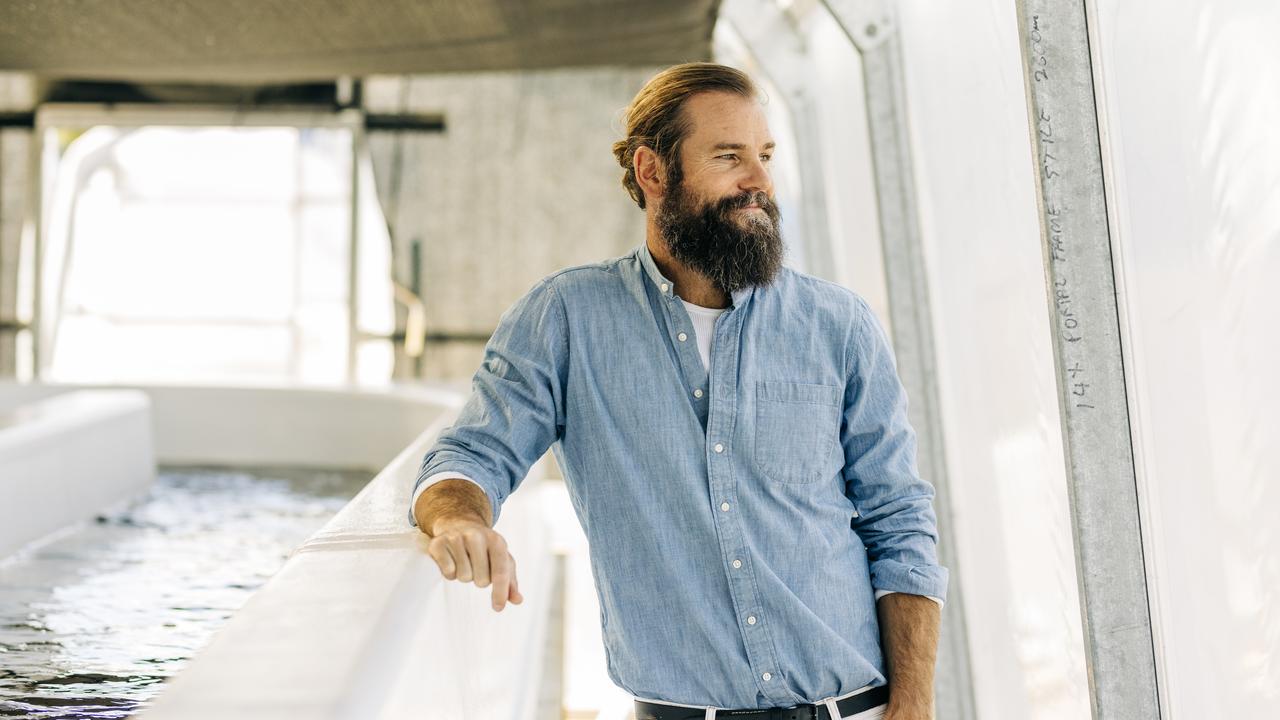
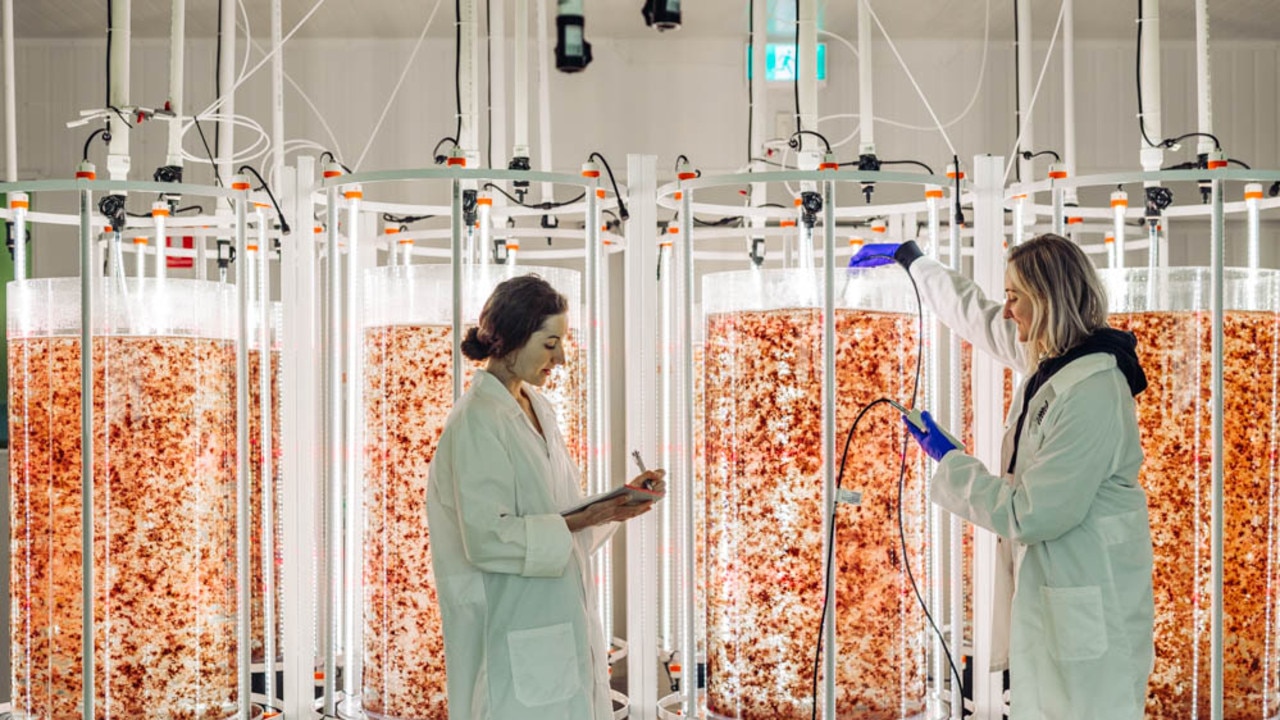
“Solar panels were commercialised in China. We discovered wi-fi, but it was commercialised in the US.
“We could be squandering an opportunity if we don’t move faster and I think that does need to be driven by the government.”
Nearly a decade ago, a team of scientists from CSIRO and James Cook University started investigating the methane reduction potential of native Australian seaweeds.
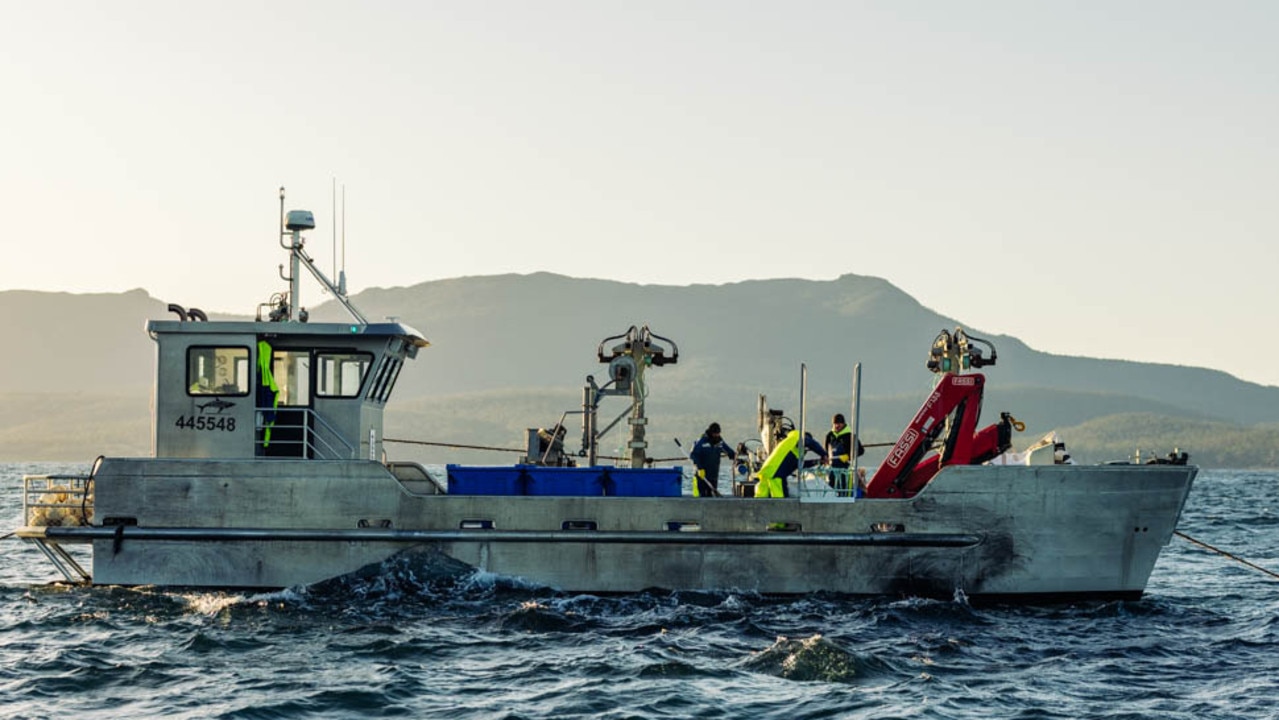
Sea Forest was one of the first start-ups to successfully turn red seaweed asparagopsis into a livestock feed that can reduce the methane emissions of cows and sheep by up to 98 per cent.
Just six years ago, Mr Elsom was running his self-titled sustainable fashion label, Elsom, with stock on shelves in Selfridges, Barney’s and David Jones.
He credits a conversation with Australia’s former chief scientist Tim Flannery in 2017 for the light bulb moment that kick started Sea Forest.
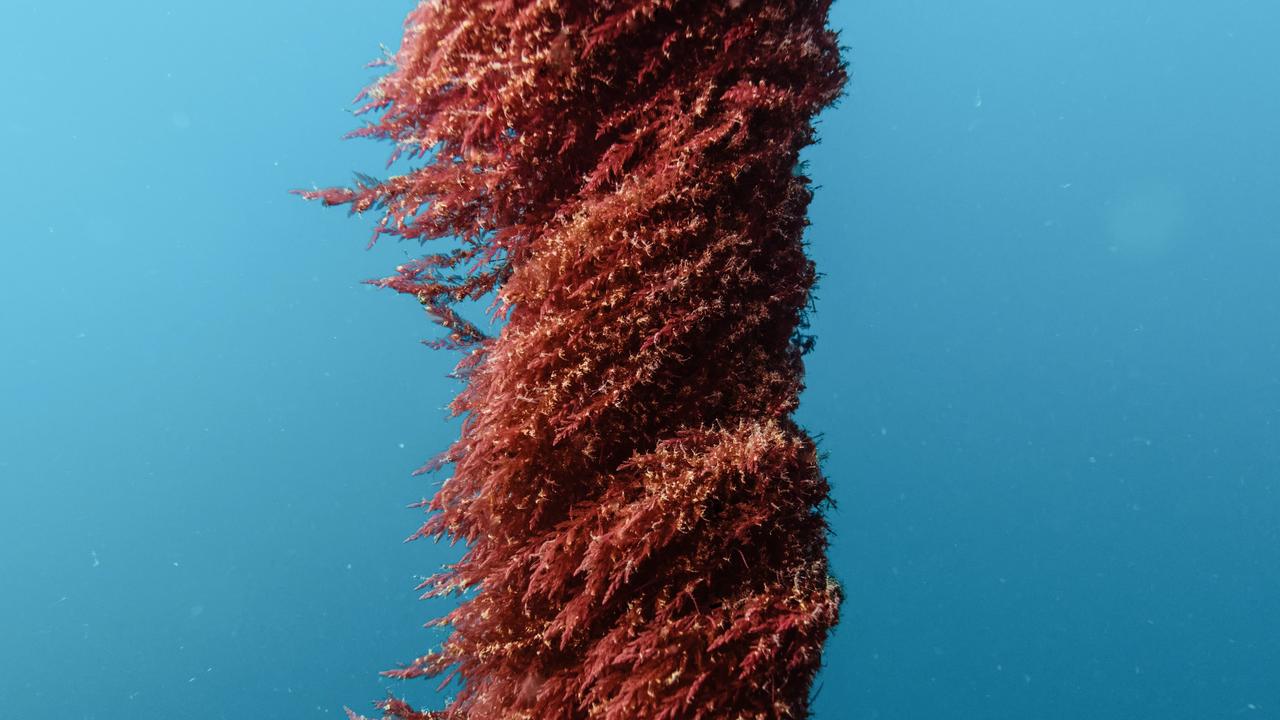
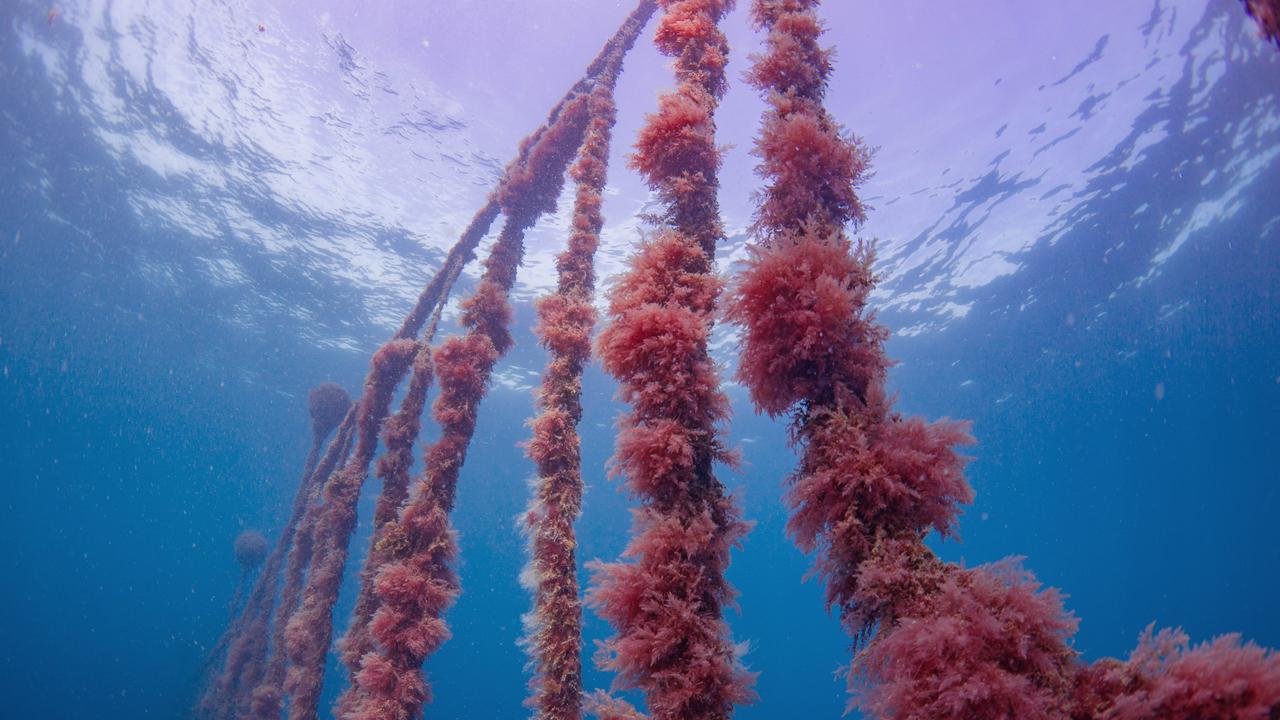
“[Tim] said we need people with entrepreneurial skills to get behind solutions, the solutions already exist, but there’s just not enough people driving and scaling these solutions,” he said.
Australia is one of 122 countries that signed up to the global methane pledge in 2022 to reduce the second most abundant greenhouse gas in Earth’s atmosphere.
“So when we talk about warming, which is basically the gases in our atmosphere that are holding heat and causing a lot of these climatic changes, methane is responsible for quite a lot of it,” Mr Elsom explained.
While carbon dioxide might surpass methane in quantity, it’s global warming potential is up to 28 times that of carbon dioxide.
Interestingly, methane is also a short-wave atmospheric gas that only lasts in the atmosphere for about 12 years – a fraction of the centuries-long lifespan of carbon dioxide.
“So if we can mitigate it, then we will also be able to watch as it exits the atmosphere, leading to a significant curving in the warming that we’re experiencing,” Mr Elsom said.
However, if we are to meet our commitments to reduce methane emissions and ultimately become a global leader in seaweed feed production, Mr Elsom believes we need the government to get on board.
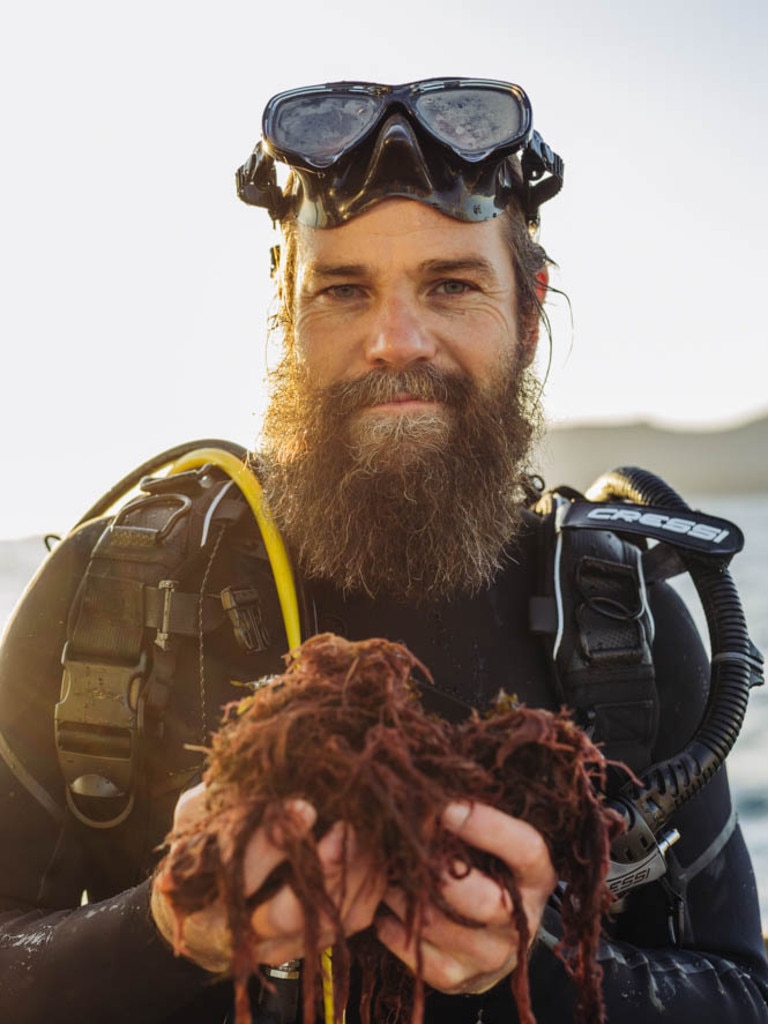

European governments have already started to implement radical measures to meet their methane reduction targets.
In the Netherlands, the government is buying back dairy farms to reduce the number of livestock on farms.
While in Ireland, the government has announced they will cull 200,000 cattle to meet their commitments.
“It seems inevitable that some kind of measure will be handed down here in time but food security is still an issue and farmers are the backbone of our economy,” he said.
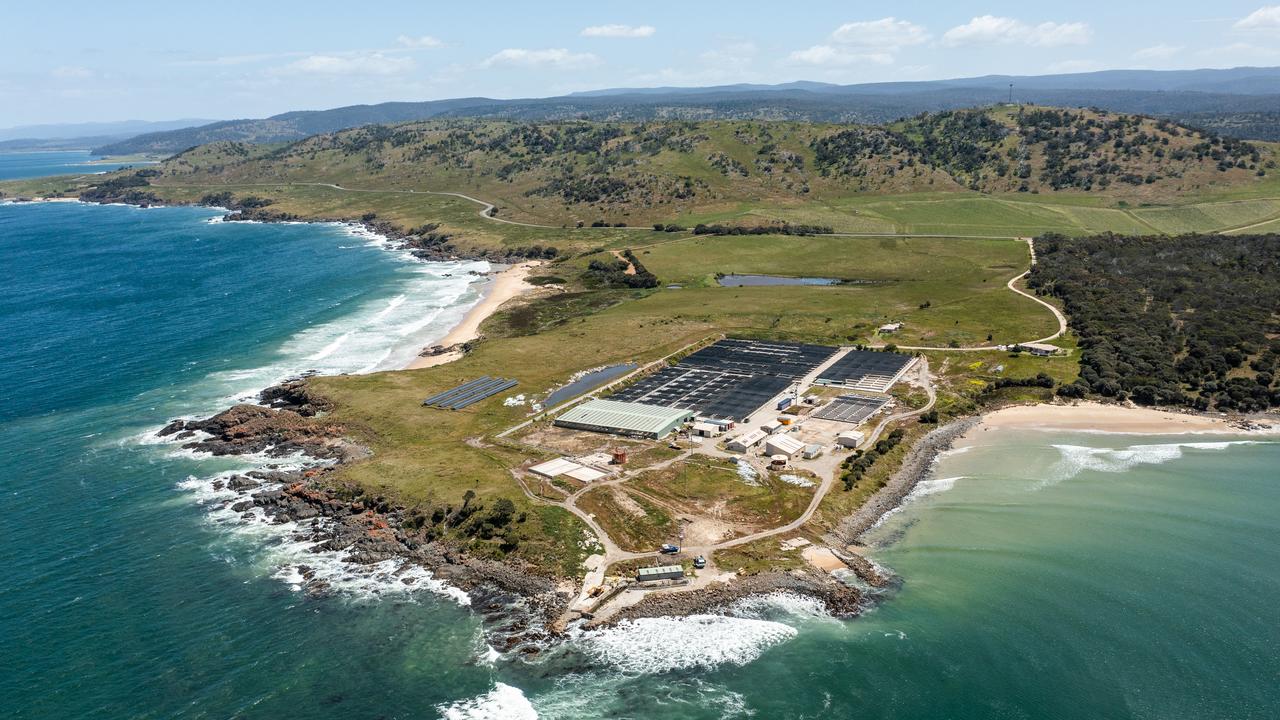
Sea Forest is already being used by farmers across the country and is starting to gain international interest.
“For countries like Australia to be getting ahead of the curve it may open up new export markets, like Europe, and the US which will provide a higher value for a more sustainable product from our farmers,” Mr Elsom said.
There are around 14,000 recorded species of seaweed in the world, and there are more of those seaweeds in Australia than anywhere else in the world. Yet, we don’t have a seaweed aquaculture industry.
“In Tasmania, we have really clean, nutrient rich water that comes straight from Antarctica, and obviously, being an island nation, we’re surrounded by ocean and that presents a really exciting opportunity,” Mr Elsom said.
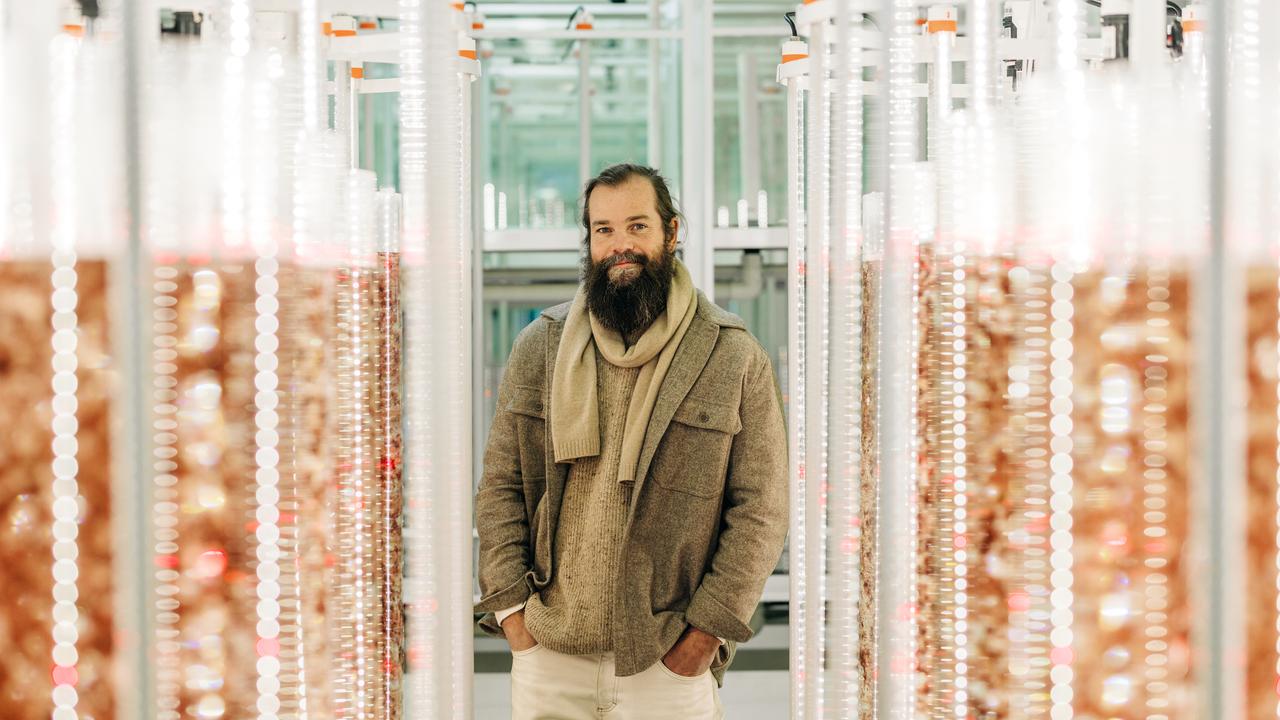
Mr Elsom believes Australia could be an international leader in the commercialisation of seaweed, and Sea Forest is ready to take their solution to the world.
“We believe we can replicate what we've done in Tasmania, in places like the UK, the US, South America, and even in Europe potentially,” he said.
The five Earthshot prize winners will be announced on November 7.



